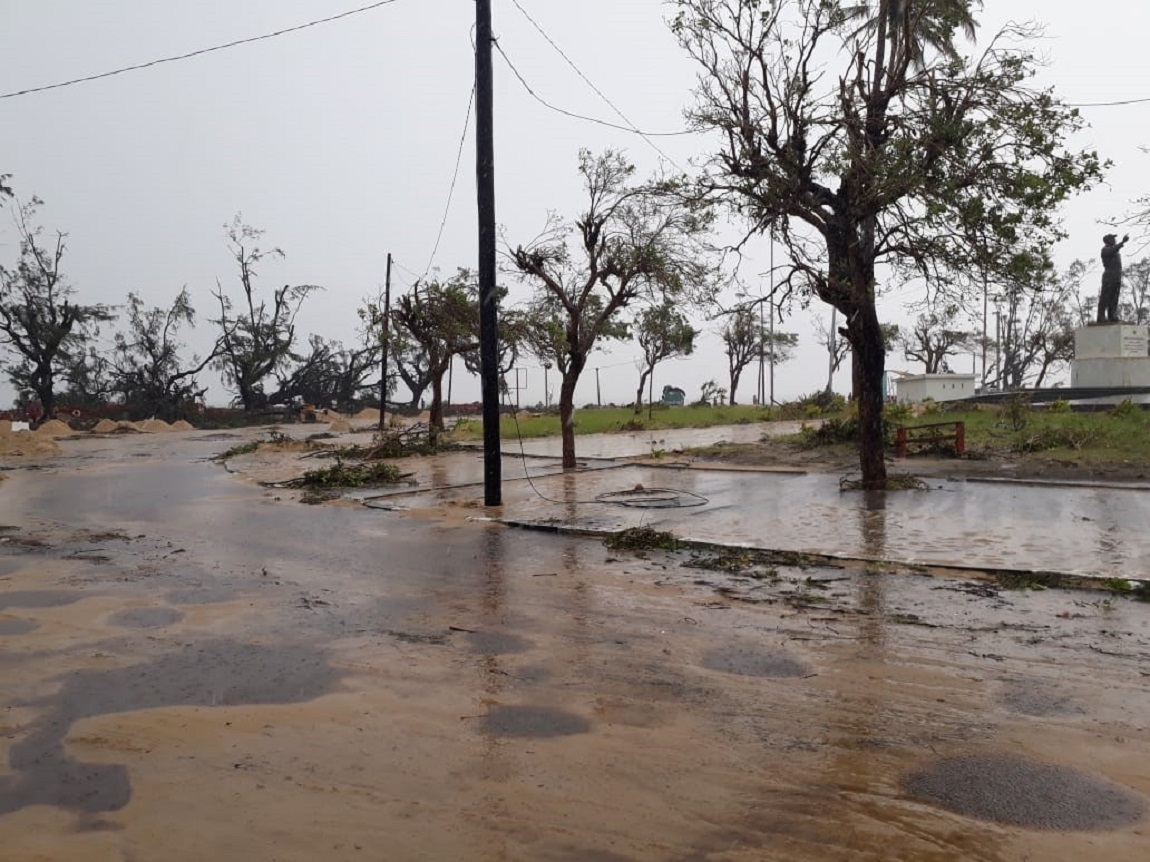Cyclone Idai has devastated Mozambique, Zimbabwe and Malawi. The cyclone hit Mozambique’s second-largest port city of Beira on March 14 before it had its landfall. The death count has been steadily rising as evacuations efforts have taken place. Al Jazeera has reported than more than 2.6 million have been affected by this disaster with the death toll over 1000.
Unfortunately, coverage on the disaster has been lacking, especially from South African media.
Impact of Cyclone Idai
The International Federation of Red Cross and Red Crescent Societies’ Jame LeSuera said: “This is the worst humanitarian crisis in Mozambique’s recent history.” Rescue teams and aid groups have struggled to reach survivors and victims trapped in remote villages. The extensive damage to infrastructure has reportedly severely hindered efforts.
The European Union (EU) announced a $3.97 million aid package to the affected countries with the South African government lobbying with the United Nations for more aid.
Possible human reasons for disaster
There have been reports about how the cyclone exposed the poor disaster management in Zimbabwe. Times Live reported that in Zimbabwe – the least affected by the disaster – there were no proper mitigation strategies in place to reduce the impacts of the disaster. In Mozambique however, there has been no mention about any possible man-made causes of the disaster. This might be partly because of the government’s strict press laws.
Mozambique’s Press Laws
In 2018, the government introduced new fees for foreign journalists.
Taking effect from August 22 the laws would expect foreign correspondents to pay $2,500 per trip for media accreditation. Foreign correspondents living in Mozambique would be charged $8,300 per year. Up until that point registration for foreign correspondents to Mozambique was free. At the time concern was expressed that this might mean fewer journalists would be able to cover stories in the country – and only big media houses who could afford it would be able to go.
Reprisals against journalists
Many journalists have died in recent years in Mozambique, in the course of doing work that is critical to the government, or ruling party Frelimo. Journalists or investigators who have died in recent years including investigative reporter Carlos Cardoso, and Paulo Machava, according to reporting in the Mail & Guardian.
The government also uses the threat of legal action to suppress critical reporting.
Media Reporting
William Bird from Media Monitoring Africa (MMA) told The Daily Vox in an interview the organisation is not aware if any journalists are being prevented from doing their job in Mozambique. But he did say: “A lot of the media tends to be state-controlled […] There is no doubt that in these instances the narratives will be shaped by the government.”
Bird says there is limited communications in the worst affected areas which affects the coverage especially if there is controlled access to certain areas by the government. “Say if they (the journalists) are there with Gift of the Givers you can imagine they might have better access that they otherwise wouldn’t. But we don’t know what the Mozambican government said to Gift of the Givers. They might have said you are not allowed to bring in anyone here in case.” Bird said.
He adds that there could be a combination of factors hindering the coverage which has been mostly that it’s a big disaster and nothing beyond that. Bird said: “We are not seeing coverage that talks about how much of this was human supported or created. As much as cyclones are natural things often if systems aren’t maintained then the disaster can be a thousand times worse. If you look at the relative coverage that has been afforded considering 1,000 people have died it seems life is entirely cheap and devoid of meaning.”
Bird adds: “If you look at disasters in Europe or any other country there is always a lot of detailed explanations and experts telling you why and what is going on. As soon these things happen on our continent it’s as if it’s an act of God or it’s expected which is part of the underlying racist myth.”
Bird says considering that the affected countries are neighbouring South Africa, the coverage should be a lot more nuanced and South African media should have a better idea about what is going on in the country than is currently shown.
Appeals for help
There have been many appeals for help from citizens for the disaster. UNICEF called for $ 20.3 million to support the response in the three affected countries. More information on UNICEF’s relief efforts can be found here www.unicef.org.
International Relations and Cooperation Minister Lindiwe Sisulu released an appeal to South African NGOs, companies and individuals to make donations to the people affected by the cyclone. The Minister said on March 17: “We have this afternoon received reports from our Missions and our teams on the ground working with authorities, what is urgent now is the provision of humanitarian aid”.
MSF Southern Africa is on the ground in the affected areas working to assess the needs of people and provide needed responses. More information of MSF efforts and how to help can be found on their website. www.msf.org.za
Featured image via MSF Southern Africa









